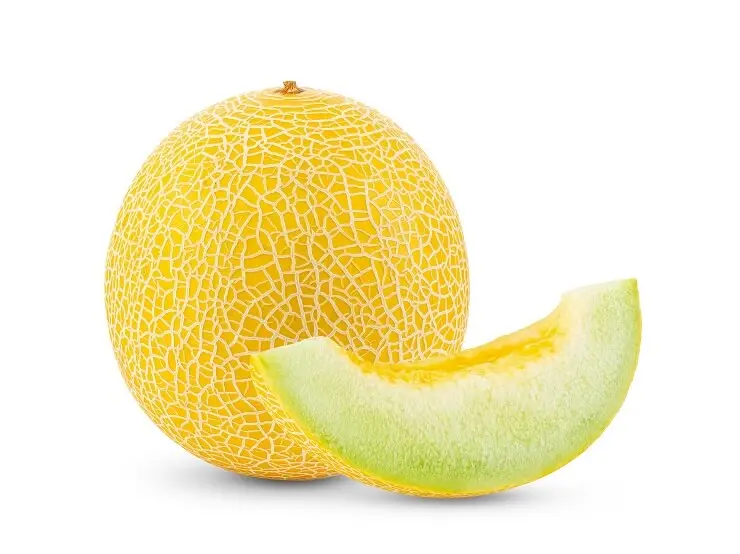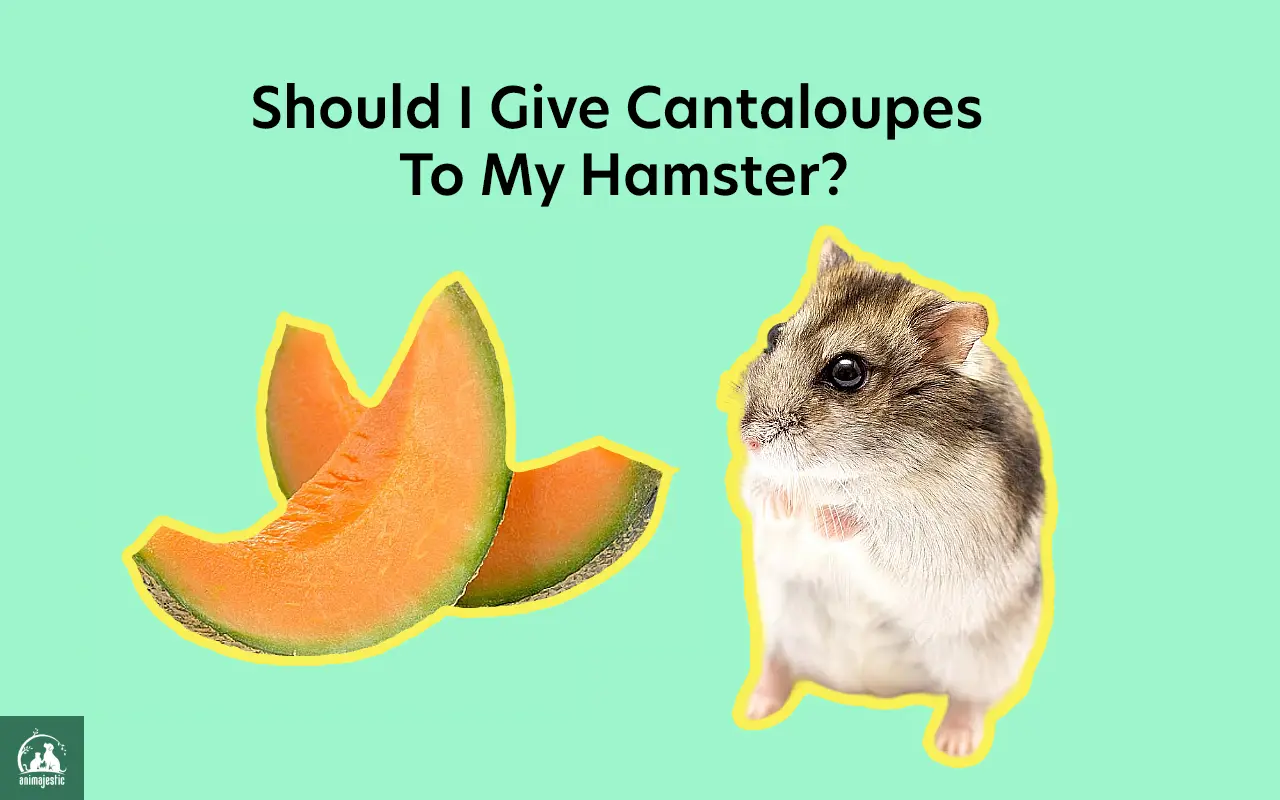The Short Answer
We’re not going to beat around the bush. Yes, Hamsters can eat cantaloupes, provided you follow the recommended guidelines that make sure it is safe for them. Let’s explore further why cantaloupes are good for them, and how you can safely feed them to your hamster.
Health Benefits of Cantaloupes
Cantaloupes are a delicious and nutritious fruit, packed with essential nutrients like vitamins A and C, potassium, and fiber. Vitamin A supports healthy vision and immune function, while vitamin C is crucial for wound healing and overall health. Potassium helps regulate blood pressure and fluid balance, and fiber aids in digestion and prevents constipation.
Hamsters, however, have different nutritional requirements than humans, so let’s explore whether cantaloupes are suitable for them.
Potential Risks of Feeding Cantaloupes to Hamsters
While cantaloupes contain many beneficial nutrients, there are some potential risks to consider before offering them to your hamster. One concern is the sugar content. Cantaloupes are relatively high in sugar, which can lead to obesity and diabetes in hamsters if consumed in large quantities.
Also, cantaloupes have a soft texture, which can contribute a choking hazard if your hamster tries to stuff large pieces into their cheek pouches. To minimize this risk, cut the cantaloupes in small, bite-sized pieces before feeding them to your hamster.

Feeding Cantaloupes Safely to Your Hamster
If you decide to give cantaloupe to your hamster, follow these steps to ensure their safety:
- Choose a ripe, fresh cantaloupe. Avoid those with any signs of mold or decay.
- Wash the cantaloupe thoroughly to remove any pesticides or contaminants.
- Cut the cantaloupe into small, bite-sized pieces. Remove any seeds, as they can be a choking hazard.
- Feed a small amount of cantaloupe to your hamster as a treat, not a regular part of their diet. A piece the size of a raisin is enough for a single serving.
- Monitor your hamster while they eat the cantaloupe to ensure they don’t choke or have an adverse reaction.
- Remove any uneaten cantaloupe after a few hours to prevent spoilage.
Alternatives to Cantaloupes for Your Hamster
If you’re not comfortable with feeding cantaloupe to your hamster or just want to explore other options, we have a whole blog post dedicated to that, which goes in-depth into all the vet-approved foods your hamster can eat. If you’d rather have a quick glance, they are as follows:
Apple Slices (without seeds)
Apples are a good source of vitamins A and C, as well as dietary fiber. They can help support your hamster’s immune system and aid digestion. Be sure to remove the seeds, as they contain small amounts of cyanide, which can be harmful to your hamster.
Blueberries
Blueberries are rich in antioxidants and vitamin C, which can help protect your hamster’s cells from damage and support their immune system. They are also low in calories and sugar, making them a healthy treat option.
Broccoli
Broccoli is packed with vitamins A, C, and K, as well as minerals like calcium and potassium. This vegetable can help support your hamster’s immune system, bone health, and overall well-being.
Carrot
Carrots are an excellent source of beta-carotene, which converts to vitamin A in your hamster’s body. This nutrient is essential for maintaining healthy vision, skin, and immune function. Carrots also provide fiber, which aids in digestion.
Cucumber
Cucumbers are low in calories and high in water content, making them a hydrating treat for your hamster. They also contain small amounts of vitamins A, C, and K, as well as minerals like potassium and magnesium.
Grapes (cut in half)
Grapes are a good source of vitamins C and K, as well as antioxidants. They can help support your hamster’s immune system and overall health. Be sure to cut grapes in half to prevent choking hazards.
Peas
Peas are high in vitamins A, C, and K, as well as minerals like iron, potassium, and magnesium. They can help support your hamster’s immune system, blood health, and overall well-being. Peas also provide protein and fiber, making them a nutritious treat.
Spinach
Spinach is rich in vitamins A, C, and K, as well as minerals like calcium, iron, and potassium. This leafy green can help support your hamster’s immune system, bone health, and overall well-being.
Strawberry
Strawberries are high in vitamin C and antioxidants, which can help protect your hamster’s cells from damage and support their immune system. They are also low in calories and sugar, making them a healthy treat option.
Remember to always introduce new foods gradually and in small quantities to avoid upsetting your hamster’s digestive system.
Conclusion
So, should you give cantaloupes to your hamster? Yes, you can. While they can be a tasty and nutritious treat, it is important to do so in moderation and follow the safety guidelines outlined above. Your hamster will thank you for providing them such a varied diet!
